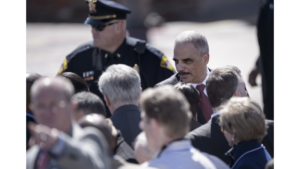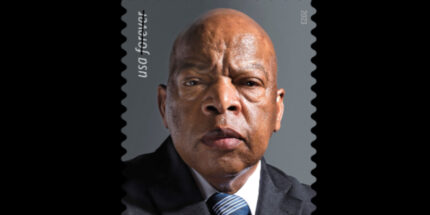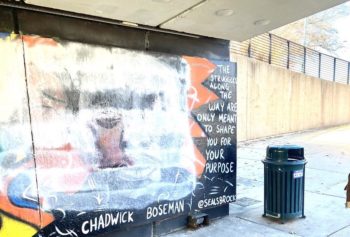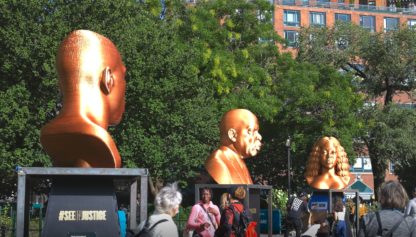
It was a stark reminder that the forces still aligned against progress in the Black community continue to work quietly behind the scenes, taking away gains that many assumed would always be there.
“Fair and free access to the franchise is still, in some areas, under siege,” Holder said yesterday in a speech at Selma’s Brown Chapel AME Church. “Shortly after the historic election of President Obama in 2008, numerous states and jurisdictions attempted to impose rules and laws that had the effect of restricting Americans’ opportunities to vote — particularly, and disproportionately, communities of color.”
The Supreme Court opened the door with a 2013 decision that essentially gutted the Voting Rights Act, which the U.S. Department of Justice has called the most effective piece of civil rights legislation ever enacted in the United States. While the 1965 law required that lawmakers in states with a history of discriminating against minority voters get federal permission before changing voting rules, in a 5-4 decision the court’s conservative block decreed that voting discrimination was no longer a threat in America.
Justice Ruth Ginsburg warned that the ruling was akin to “throwing away your umbrella in a rainstorm because you are not getting wet.”
In the wake of that decision, states across the country have eagerly enacted new laws that restrict voting rights, in almost all cases clearly targeted to limit the voting of African-Americans and other people of color. It has been a definitive rebuke of the court’s message that the law was no longer needed.
Rep. John Lewis of Georgia, who was beaten and bloodied on the Edmund Pettus Bridge 50 years ago, has introduced legislation in the House that would give teeth back to the Voting Rights Act, but some of the Republican lawmakers who attended the commemoration over the weekend pretended to be unaware of its existence.
On his way to the commemoration ceremony, Sen. Rob Portman (R-OH) told ThinkProgress that it was “powerful” to hear stories from Lewis about getting beaten, but when asked if he supports Lewis’ voting rights bill, he said, “I haven’t looked at it. Is there a Senate version?”
“It is a sin that we have not in the U.S. Congress re-invigorated the Voting Rights Act and gotten it back to the President for a signature. That’s what we ought to be talking about in Selma today,” said Sen. Elizabeth Warren (D-MA).
Vermont Senator Bernie Sanders, an independent rumored to be running for president, told ThinkProgress, “What happened on that bridge that day was a huge step forward for democracy in America. But what is happening right now – not just in the South but all over this country – are efforts by Republican governors and Republican legislatures to make it harder for African-Americans, for low-income people and for senior citizens to vote.”
“Commemoration requires legislation. Selma isn’t just a photo op, it’s a solemn remembrance of the blood, sweat, tears, and lives that went into securing voting rights for racial minorities in this country,” said Wade Henderson of the Leadership Conference on Civil and Human Rights,. “The Bloody Sunday march is not a parade, and it is hypocritical for members to attend the event and then do nothing to advance a VRA restoration.”
During his tenure, Holder has fought against measures such as requiring voter IDs, which have been enacted in more than two dozen states. He said yesterday that the work of the Civil Rights Movement is not done as long as racial barriers remain at U.S. voting booths.
“Let me be clear,” Holder said. “While the Court’s decision removed one of the Justice Department’s most effective tools, we have used the remaining provisions of the Voting Rights Act to fight back against voting restrictions in states throughout the country — and won. The Justice Department is also working hard outside the courtroom. I have urged state legislatures to lift restrictions that currently disenfranchise millions of citizens convicted of felonies who have served their sentences in order to help them rejoin their civil communities and reclaim their futures.”
Holder is about to be replaced by Loretta Lynch, who will be the first Black woman to serve as attorney general, but he said he will keep fighting for equal rights—and he urged the crowd to do the same.
“The times change, the issues seem different, but the solutions are timeless and tested: Question authority and the old ways,” Holder said. “Work. Struggle. Challenge entrenched power. Persevere. Overcome.”


